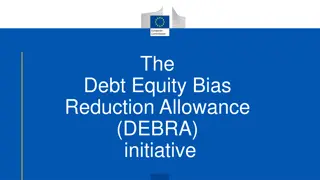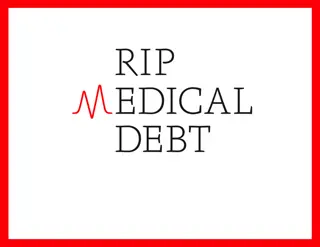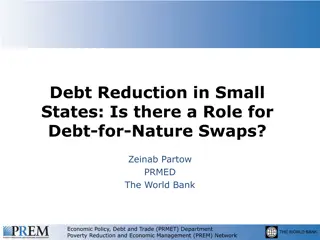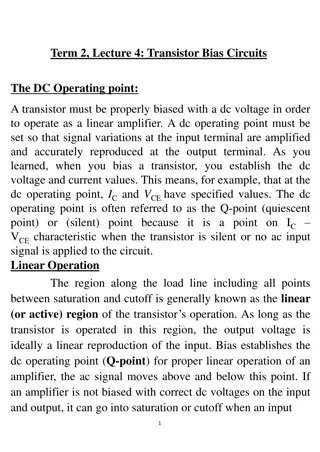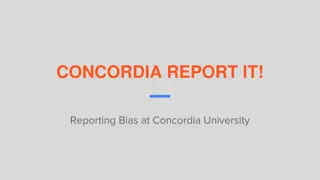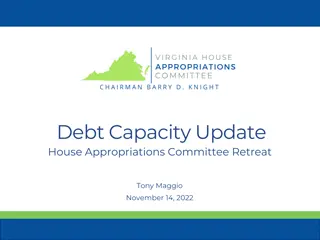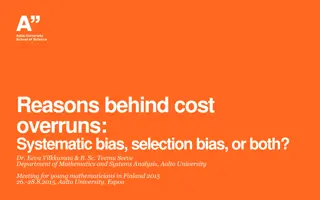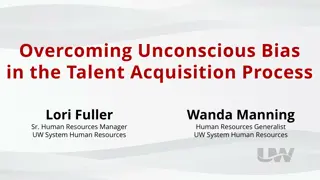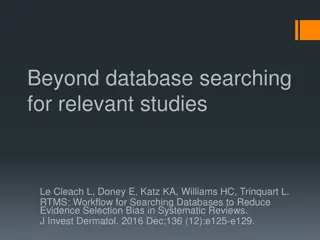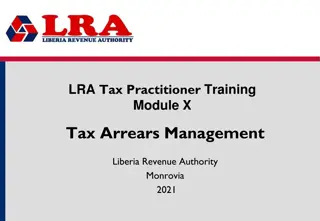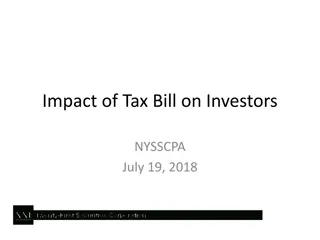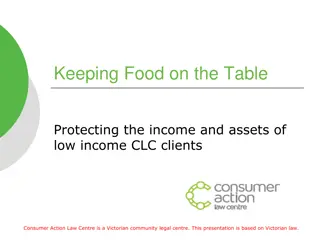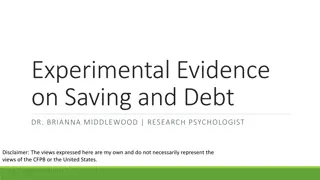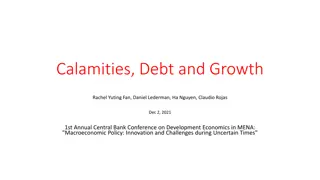DEBRA Initiative: Mitigating Tax-Induced Debt-Equity Bias in Corporate Investment
DEBRA is an EU proposal to address the bias towards debt financing over equity in corporate investment decisions by allowing deductibility of notional interest on equity. The initiative aims to create a level playing field, encourage equity-based investments, and combat tax avoidance practices. By harmonizing tax treatment, DEBRA seeks to enhance cross-border business activities in the single market and reduce compliance costs for companies. It also considers setting notional interest rates based on market interest rates with possible risk premiums. SMEs, facing challenges in accessing equity financing, could benefit from higher notional interest rates under DEBRA.
Download Presentation

Please find below an Image/Link to download the presentation.
The content on the website is provided AS IS for your information and personal use only. It may not be sold, licensed, or shared on other websites without obtaining consent from the author. Download presentation by click this link. If you encounter any issues during the download, it is possible that the publisher has removed the file from their server.
E N D
Presentation Transcript
The Debt Equity Bias Reduction Allowance (DEBRA) initiative
What is DEBRA? An initiative to mitigate the tax induced debt-equity bias in corporate investment decisions. The Commission announced this proposal in the Communication Business Taxation for the 21stCentury.
What is the tax debt bias? In many corporate tax systems: interest payments on debt-financing are tax-deductible the costs related to equity financing are not deductible Asymmetric tax treatment of financing costs => bias in investment decisions towards debt financing
Reasons to act at EU level The tax debt-equity bias is widespread across the EU. Member States can introduce measures to tackle the tax induced debt-equity bias at national level. Country specific rules can lead to misallocation of investments in the single market if companies base their investment decisions on the availability of debt bias mitigating measures. Country specific rules also imply higher compliance costs for businesses active in cross border operations in the single market.
This initiative on neutralizing the debt-equity bias will provide for a common approach to mitigating the debt bias; take the form of an allowance that provides for the deductibility of notional interest on equity; create a harmonized tax environment for businesses that encourages equity-based investments and help further remove distortions in the single market; encompass a sound anti-abuse framework to tackle tax avoidance practices;
Notional interest rate Reference to a market interest rate for risk-free investments (irf) and a possible risk premium (x). The risk premium could be a fixed percentage (2% for instance) updated annually in accordance with a formula that would take the evolution of the risk-free interest rates into account, using an adjustment factor. Alternatively, the notional interest rate could be determined with reference to an index of market risk.
Other elements SMEs face more difficulties in accessing certain forms of equity financing. Possibility to grant a higher notional interest rate for SMEs. Eligible SMEs would be those which meet the definition of Art. 3 of the Accounting Directive, and are not part of a group of companies which, at consolidated level, exceeds at least two of the three limits of this same Art. 3.
Anti-abuse framework Measures providing allowances for equity can be abused if not coupled with an adequate anti-tax avoidance framework. Guidance on notional interest deduction regimes by the Code of Conduct Group (2019). It is based on past decisions of the Code of Conduct Group concerning notional interest deduction (NID) regimes. The DEBRA initiative would encompass a general anti-abuse provision and a number of specific anti-abuse rules (SAARs) based on this guidance by the Code against, amongst others, cascading a single equity injection through different subsidiaries of a group.
Thank you very much for your participation!


